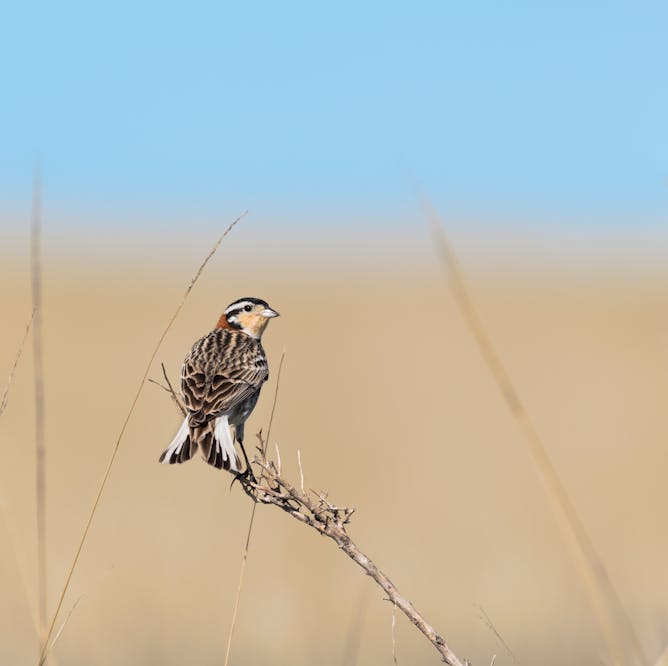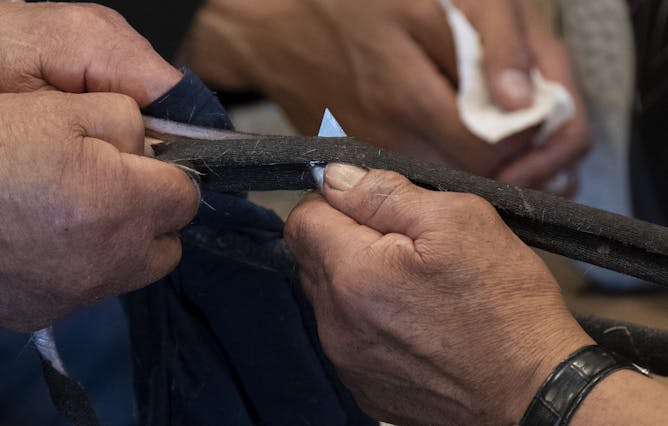|
Every year, the the Reuters Institute for the Study of Journalism at the University of Oxford releases the Digital News Report, a survey about online news and the people who consume it. It's a crucial tool that helps news outlets understand the news from the public’s point of view.
Today in The Conversation Canada, Colette Brin and Sébastien Charlton from the Centre d'études sur les médias at Université Laval explain this year's findings from a Canadian perspective. They point out that trust in the news media has sunk to its lowest point in seven years. Only 42 per cent of Canadians trust the news, and less Canadians than ever before believe that the media is independent from business influence.
Brin and Charlton explain that, while the survey has some troubling findings about the state of trust in Canadian media, there are still silver linings to be found. More Canadians than ever before are paying for online news, and most of them subscribe to more than one news source. These findings are promising for the future of independent and grassroots news organizations in Canada.
Beyond that, the survey findings can provide news organizations, media governing bodies and the public with key evidence-based information to help support the development of better media policies, along with better journalism practices.
Also today:
Prairie songbirds are affected by unpredictable noise produced by oil drilling
Social assistance cuts are contributing to high rates of HIV, syphilis in Saskatchewan
The witch treatment: What Dr. Strange’s Wanda tells us about representations of female anger
Older lesbians are the keepers of a rich history of the lives of women who love other women
|

The Digital News Media report studies the consumption habits online news consumers and sheds light on issues facing news media across the globe.
(Shutterstock)
Colette Brin, Université Laval; Sébastien Charlton, Université Laval
During this time of disruption and transformation, surveys like the Digital News Report contribute to our understanding of professional news sources from the public’s point of view.
|

The chestnut-collared longspur spends the winter in Mexico and the southern United States; the Canadian prairies are its breeding grounds.
(Jeremy Price)
Patricia Rosa, St. George's University
Noise created by the oil industry impacts songbirds. Research found that constant noises, like those produced by oil wells, are less disruptive than the shorter bursts of noise produced by drilling.
|

Saskatoon is seen across the South Saskatoon River.
(Shutterstock)
Alana Cattapan, University of Waterloo; Holly Ann McKenzie, University of Saskatchewan
Saskatchewan leads the country in preventable, opportunistic illnesses enabled by poverty. With recent changes to income support programs and increased housing instability, things are getting worse.
|

Wanda’s rage fuels her actions in ‘Dr. Strange in the Multiverse of Madness.’
(Shutterstock)
Gaelle Planchenault, Simon Fraser University
Visual references to mythological and popular culture figures of female anger abound in the latest Dr. Strange movie.
|

2SLGBTQQIA+ history cannot be complete without the stories of lesbian women.
(Shutterstock)
Jacquie Gahagan, Mount Saint Vincent University; Denyse Rodrigues, Mount Saint Vincent University
The Nova Scotia LGBT Seniors Archive and Lesbian Oral History Project focus on gathering stories from the generation that began using the term lesbian, and those who still can’t.
|

Des hommes participent à une démonstration de fabrication de cordes pour les attelages de chiens, le 12 mai 2022, à Inukjuak, au Québec.
La Presse Canadienne/Adrian Wyld
Carole Lévesque, Institut national de la recherche scientifique (INRS)
Le Réseau DIALOG est une passerelle entre savoirs scientifiques et autochtones. Il renouvelle la relation entre l’université et le monde autochtone, trop longtemps caractérisée par un rapport unilatéral.
|
|
|
Health
|
-
Adam Taylor, Lancaster University
Bieber announced on Instagram that he has paralysis on one side of his face, caused by the varicella-zoster virus.
|
|
Politics
|
-
Julien Robin, Université de Montréal
Amid record abstention, the left-wing NUPES coalition performed well against the presidential coalition.
|
|